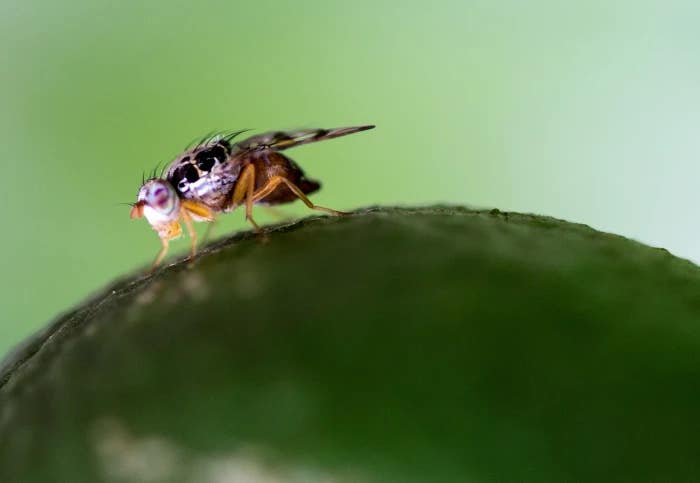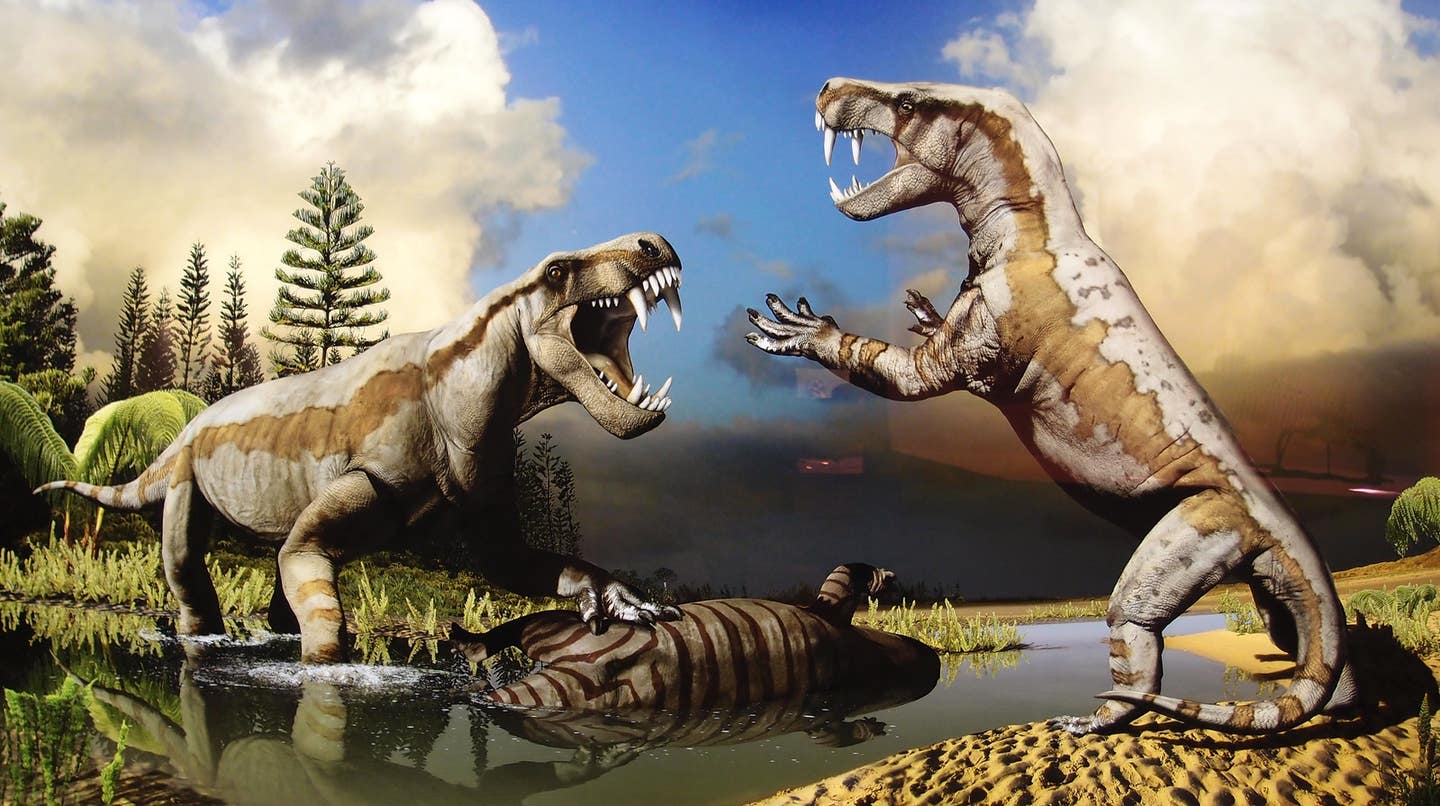Genetically modified flies can reduce waste and keep it out of landfills
Scientists have laid out a future where these engineered flies could revolutionize waste management and sustainable biomanufacturing.

Modified fly (CREDIT:
Imperial College London)
A team at Macquarie University is proposing a groundbreaking solution to global pollution by utilizing genetically engineered black soldier flies (Hermetia illucens). Their innovative approach not only targets pollution but also aims to produce valuable raw materials for industries, including the massive USD $500 billion global animal feed market.
In a recently published paper in Communications Biology, the scientists at Macquarie University laid out a future where these engineered flies could revolutionize waste management and sustainable biomanufacturing. Their research aligns with multiple United Nations Sustainable Development Goals (SDGs), demonstrating the far-reaching impact of their work.
Dr. Kate Tepper, a Postdoctoral Research Fellow at Macquarie University’s Applied BioSciences and lead author of the paper, highlights one of the critical challenges in developing circular economies: “One of the great challenges in developing circular economies is making high-value products that can be produced from waste,” she says.
The issue of organic waste is significant, with an estimated 40 to 70 percent of global organic waste ending up in landfills. This contributes to about five percent of annual global greenhouse gas emissions, a figure that urgently needs to be reduced to zero.
Dr. Tepper emphasizes the importance of addressing this issue: “The landfilling of organic waste creates about five per cent of annual global greenhouse gas emissions and we need to get this to zero per cent.”
One potential solution lies in the use of organic by-products from sewage treatment, such as municipal biosolids, which can be repurposed as alternatives to synthetic fertilizers, thus helping to close nutrient cycles. However, concerns are rising about the presence of toxic chemicals in waste, including harmful ‘forever chemicals’ like per- and poly-fluoroalkyl substances (PFAS).
Related Stories
In many developing countries, organic wastes are often dumped in open areas, leading to water contamination, attracting pests, spreading disease, and degrading natural habitats. Additionally, farmers frequently resort to burning leftover crop parts they cannot use, further contributing to air pollution.
Black soldier flies are already recognized for their role in waste management, particularly in consuming commercial organic wastes. These flies are subsequently processed into ‘insect biomass,’ which is used as food for domestic pets, commercial chicken, and fish farmers.
However, the team at Macquarie University believes that genetic engineering could significantly expand the utility of black soldier flies. By altering their genetic makeup, these flies could transform waste into enhanced animal feeds or valuable industrial raw materials.
The larvae of these genetically engineered flies could bio-manufacture industrial enzymes, which are currently used in various industries such as livestock, textiles, food, and pharmaceuticals. These industries represent a global market worth billions of dollars annually. Additionally, these flies could be engineered to produce specialized lipids for use in biofuels and lubricants, providing an alternative to fossil-fuel-derived products.
By engineering these insects to produce industrial enzymes and lipids not involved in food supply chains, the types of organic wastes that can be utilized would expand significantly. The research team proposes modifying the flies so they can digest contaminated organic wastes, sewage sludge, and other complex organic materials.
“Even the fly-poo, called ‘frass,’ could be enhanced to improve fertiliser,” says Dr. Tepper. “The flies could be engineered to clean up chemical contaminants in their frass, which can be applied as pollutant-free fertilizer to grow crops and prevent contaminants from entering our food supply chains.”
The concept of sustainable biomanufacturing is central to this research. Dr. Maciej Maselko, senior author of the paper and head of an animal synthetic biology lab at Macquarie University’s Applied BioSciences, believes that insects will play a crucial role in future synthetic biology applications. He points out that insects could help tackle significant waste-management challenges that have been difficult to solve with microbes alone.
Genetically engineered microbes, for instance, require sterile environments to avoid contamination, as well as substantial water and refined nutrient inputs. In contrast, black soldier flies can consume large volumes of waste more efficiently. “We can feed black soldier flies straight, dirty trash rather than sterilised or thoroughly pre-processed. When it is just chopped into smaller pieces black soldier flies will consume large volumes of waste a lot faster than microbes,” Dr. Maselko explains.
The researchers envision that genetic engineering could build on the existing waste management framework, transforming the flies from simple waste processors into high-tech biomanufacturing platforms. Their paper outlines a roadmap for developing better genetic engineering tools in key insects. “Physical containment is part of a series of protections. We are also developing additional layers of genetic containment so that any escapees can’t reproduce or survive in the wild,” Dr. Maselko adds.
Commercialization of this technology is already underway. Macquarie University, in partnership with some members of the research team, has filed patent applications related to black soldier fly biomanufacturing. This initiative is being pursued through a Macquarie University spin-out company called EntoZyme.
Dr. Tepper sees vast potential in the introduction of genetically engineered insects, not just in waste management, but also in the production of a range of high-value industrial inputs. “If we want a sustainable circular economy, the economics of that have to work,” she says. “When there is an economic incentive to implement sustainable technologies, such as engineering insects to get more value from waste products, that will help to drive this transition more rapidly.”
Note: Materials provided above by The Brighter Side of News. Content may be edited for style and length.
Like these kind of feel good stories? Get The Brighter Side of News' newsletter.
Joshua Shavit
Science & Technology Writer | AI and Robotics Reporter
Joshua Shavit is a Los Angeles-based science and technology writer with a passion for exploring the breakthroughs shaping the future. As a contributor to The Brighter Side of News, he focuses on positive and transformative advancements in AI, technology, physics, engineering, robotics and space science. Joshua is currently working towards a Bachelor of Science in Business Administration at the University of California, Berkeley. He combines his academic background with a talent for storytelling, making complex scientific discoveries engaging and accessible. His work highlights the innovators behind the ideas, bringing readers closer to the people driving progress.



